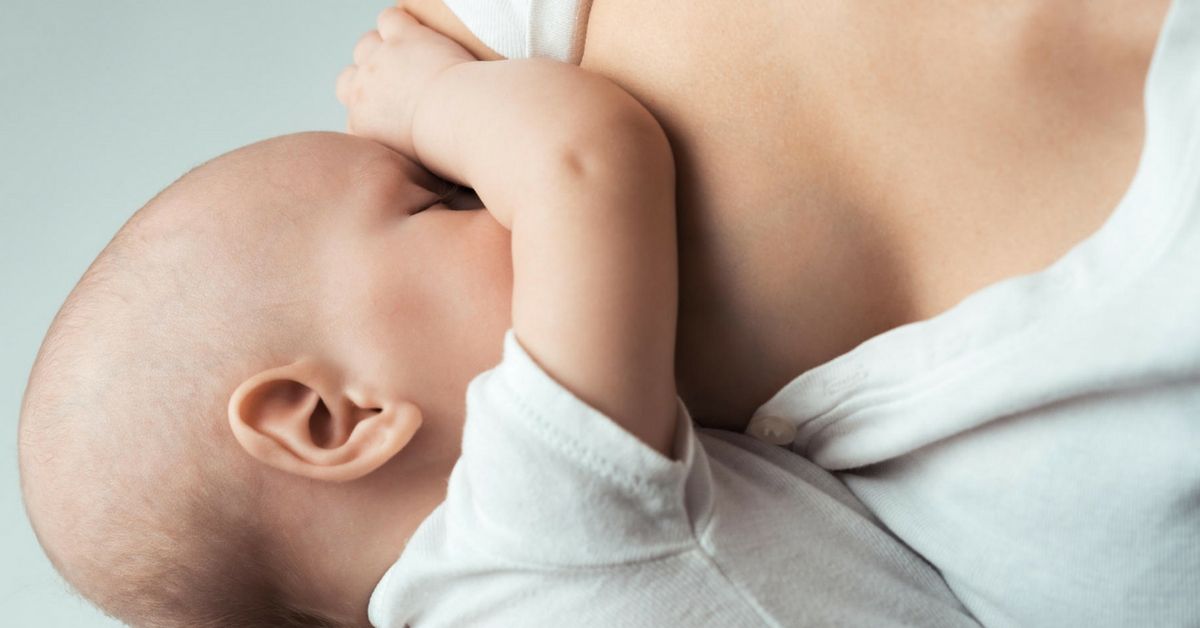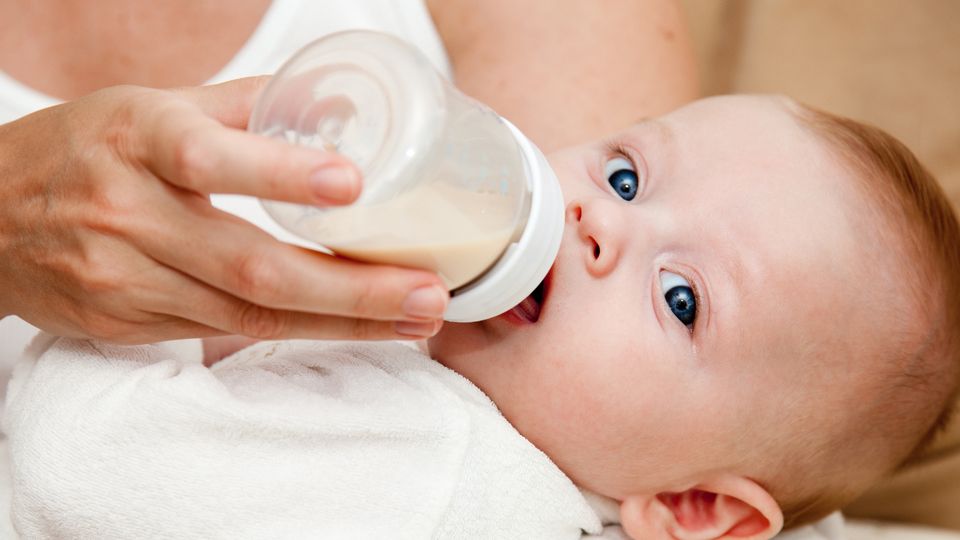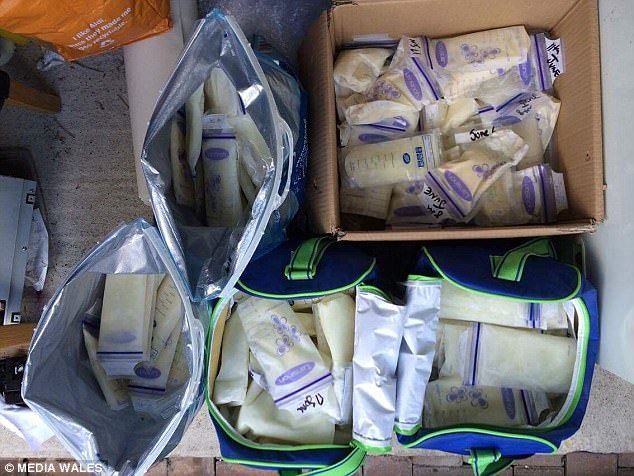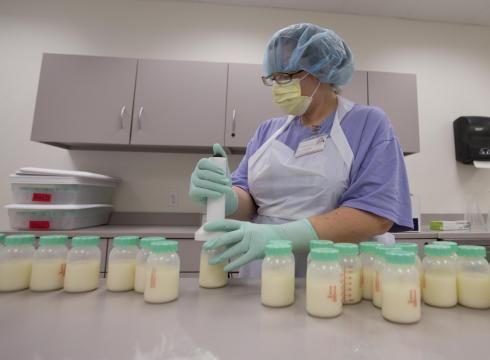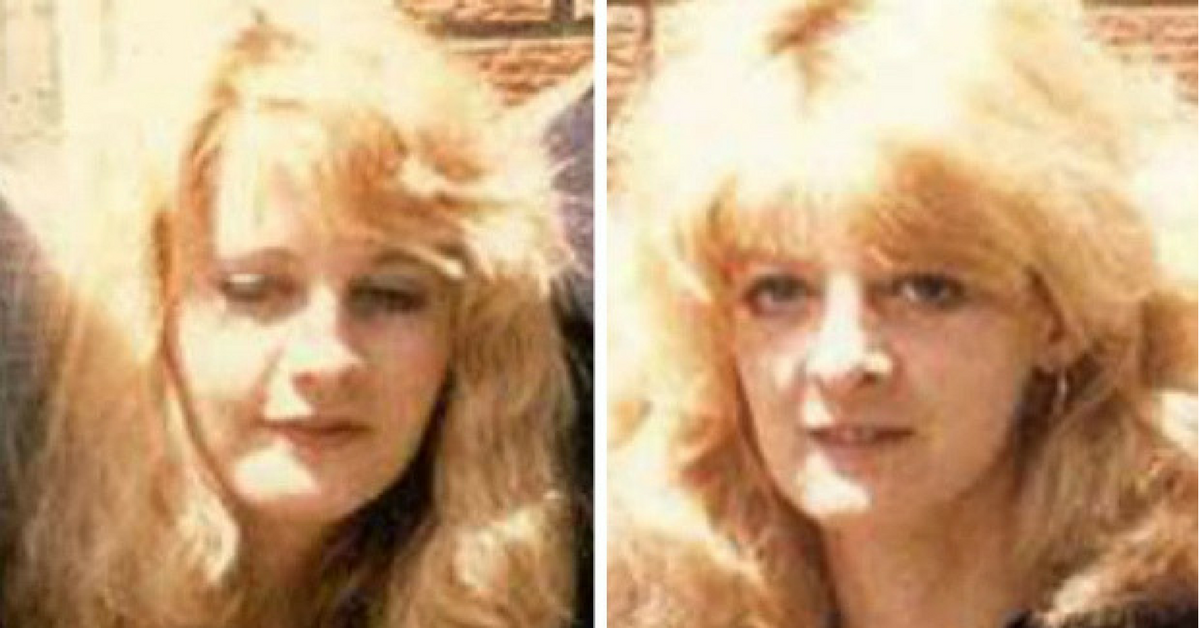As much as many mothers like to give their babies breast milk, not all of them have enough.
Whether mothers cannot produce enough, are on medication, have to go in for surgery, or choose not to breastfeed for long after giving birth, there is one unconventional way women are turning to provide quality nutrition for their young baby.
Thousands of new mothers are exchanging breast milk via social media, and health experts are warning against this popular trend.
One UK mother has been able to fill three freezers with her breast milk, and decided to become a breast milk donor to dozens of families across the UK.
Harriet Tutton, 28, joined the Facebook site "Human Milk 4 Human Babies" and has already donated to approximately 20 families.
Some have driven five hours to collect her breast milk!
These Facebook groups with more than 10,000 followers are transferring milk without getting safety clearance, which is worrying the Department of Health and the Food Standards Agency who have previously warned against unregulated practice.
If this goes unsupervised for any longer, health experts are worried about babies getting life-threatening infections.
Online "milk banks" may be putting babies at high risk for blood-borne viruses such as HIV, syphilis, hepatitis B, and serious bacterial infections like E.coli.
Despite there being an "unwritten trust" that donors would share important health information, health checks still need to be in place.
Dr. Emma Holder, a consultant neonatologist who works at a registered milk bank, told the BBC: "Fresh donor milk has significant risk of potentially passing on infection, particularly if you don't know how it was handled."
People who work at milk banks in hospitals have reported many instances every month of rejecting donations for safety reasons.
Mothers usually turn to milk banks when they experience a health crisis, but women who want to become milk donors have to go through countless and tedious screening processes.
In light of these health concerns, Tutton has received mixed reactions to her decision to donate her breast milk.
"There is quite a lot of negative words about informal breast milk sharing. Some people don't agree with it but the people I've spoken to can't believe their eyes and they are so grateful," she said. "If any mothers want to feed their baby through breast milk they should be allowed."
But some people are grateful for people like Tutton, and are not very concerned about these health risks.
"I had breastfed my other sons so not to breastfeed wasn't an option for me," Kay Elliot, a mother who suffered pain while trying to breastfeed her newborn son. "We know the majority of woman are screened throughout pregnancy so breast milk sharing wasn't an issue for me. It's lovely knowing Harriet has provided sustenance for my son."
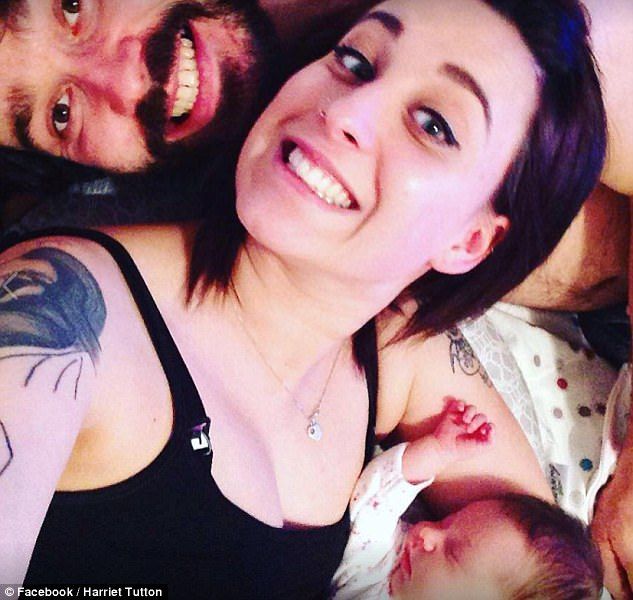
Would you ever let your child breastfeed from a mother that was not screened?
